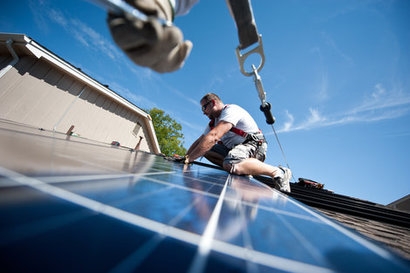
The organisations pointed to 2016’s four percent loss of solar jobs and the uncertainty created by shifting state and federal policies, voicing their support for legislative initiatives to ensure the industry grows and provides more opportunities for Massachusetts residents and businesses to choose solar.
The Solar Energy Industries Association (SEIA), Vote Solar, Coalition for Community Solar Access (CCSA), Northeast Clean Energy Council (NECEC), Solar Energy Business Association of New England (SEBANE), and MassSolar highlighted a number of bills and issues of particular importance to continued solar energy development and consumer choice.
These included the need to raise net metering caps by at least five percent to align with Governor Baker’s new 1,600 megawatt Solar Massachusetts Renewable Target (SMART) programme; the need to lower solar costs and improve customer experience by improving billing procedures and improvements to the structure of net metering caps to ensure low income and community solar projects can move forward.
The Solar Foundation reports that Massachusetts ranks 2nd nationally for jobs in the industry, with over 15,000 workers, and first in solar jobs per capita. However, in 2016, the Commonwealth actually reduced its number of solar jobs for the first time, by about 500 jobs, compared with 2015.
“Today, more than 120 projects and tens of millions of investment dollars are being left on the table because of the state’s inability to date to lift the NEM cap” said Sean Gallagher, SEIA’s vice president of state affairs. “Massachusetts has long been a solar leader. Legislative action to raise the caps will provide the industry the long-term certainty needed to keep growing. We urge the Legislature to raise the caps this year.”
Sean Garren, Northeast Senior Director at Vote Solar, added that Massachusetts' 15,000 solar workers are helping lead the nation to a future with a stronger economy, healthier communities and a safer climate and that as Washington abdicates its responsibility to lead on energy and the environment, the Commonwealth must redouble its efforts.
CCSA Executive Director Jeff Cramer pointed out that in many ways Massachusetts is the centre of the community solar industry in the US, with leading companies headquartered and active in the state. However, that leadership is at risk as the state considers policies that will determine if community solar can continue to grow and contribute to the state’s economy, environment and energy supply. Cramer said that it’s critical that Massachusetts maintain access for all customers to benefit from local clean energy through community solar.
For additional information:
Solar Energy Industries Association (SEIA)
Coalition for Community Solar Access (CCSA)

